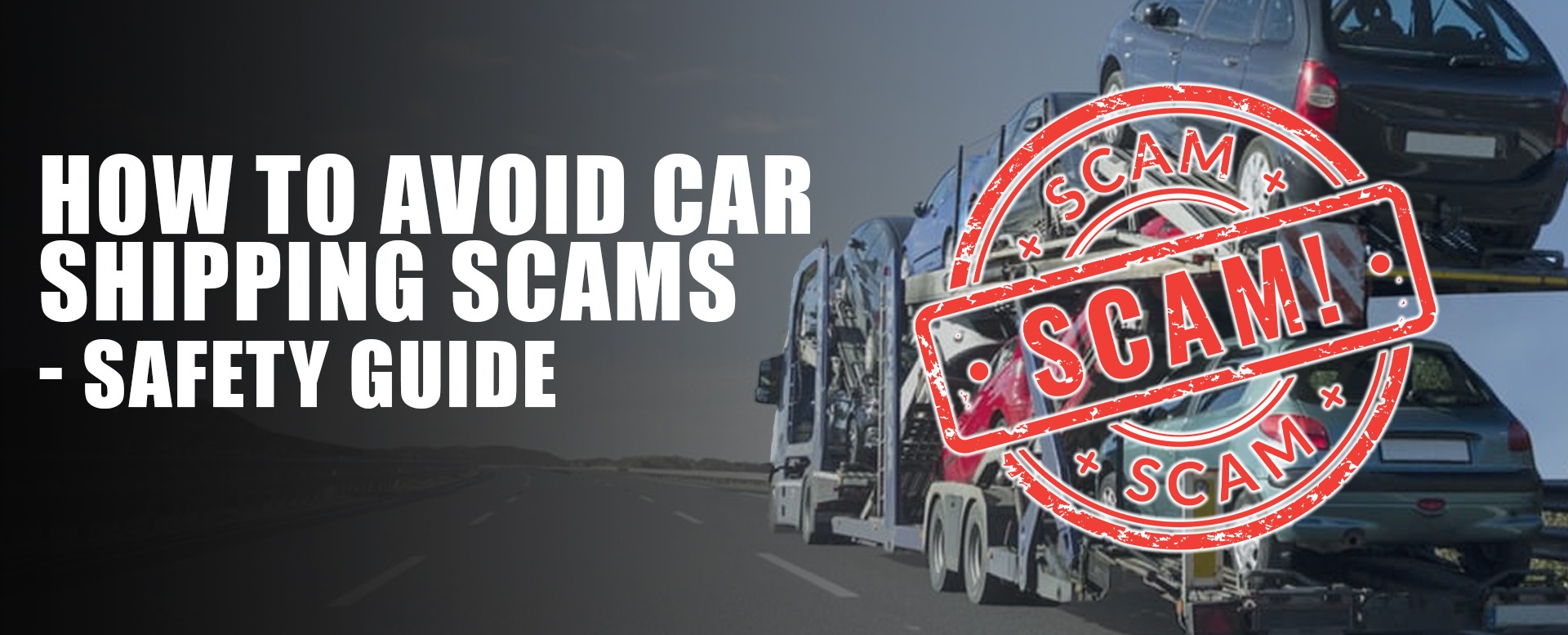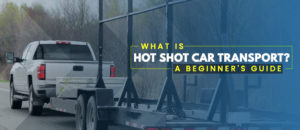Shipping a car can be straightforward and safe, but like many services that involve significant investment, it can also attract scammers. Whether you’re relocating, buying a car from a distance, or sending a vehicle to a buyer, knowing how to avoid the pitfalls of auto shipping scams is crucial. This guide will help you understand what to watch out for and how to ensure your car reaches its destination safely.
Understand the Types of Car Shipping Scams
When considering a vehicle transport company, understanding the potential scams is crucial to ensure your vehicle’s safety and your financial protection. Here’s a detailed look at the common types of car shipping scams:
1. Bait and Switch Pricing
This scam begins with an enticing offer. It could be a car transporter offering a low initial quote to grab your attention and secure your business. However, once they have your vehicle, they’ll find reasons to hike up the price. The reasons provided can vary from unexpected logistical challenges, increased fuel costs, or supposed misunderstandings in the vehicle’s size or shipping requirements. Your car is already in their possession at this stage, and you might feel compelled to pay the extra charges to get your vehicle back or delivered.
Preventive Measure: Always get a detailed contract that locks in the price before handing over your vehicle. Make sure the terms include all possible fees, and inquire about scenarios that could lead to price increases.
2. Ghost Companies
Ghost companies appear legitimate, often featuring sophisticated websites, customer service agents, and convincing marketing materials. They might offer very competitive prices and persuasive customer testimonials. However, once they receive your payment or deposit, they disappear without a trace. These companies often operate under names that are very similar to reputable shippers, making them difficult to distinguish without careful research.
Preventive Measure: Always check the company’s physical address and phone number. Verify their registration with the Department of Transportation (DOT) by asking for their DOT and Motor Carrier (MC) numbers, which you can then check on the FMCSA (Federal Motor Carrier Safety Administration) website. Also, look for reviews of independent websites of open carrier car shipping companies and check their status with the Better Business Bureau (BBB).
3. Non-Delivery
In this scenario, the car shipping company picks up your vehicle but then never ship a car across the country or anywhere else. They may cease communication entirely, or they may continually promise delivery dates that they do not honor. In some cases, the car is held “hostage” — the company demands additional payments for delivery after picking up the vehicle, citing various unexpected issues or claiming that the initial payment did not cover the full shipping cost.
Preventive Measure: Use GPS tracking if possible, and only work with enclosed vehicle transport company that provide regular updates and have transparent terms of service. Ensure that the bill of lading and the shipping contract explicitly state the expected delivery dates and the terms for any delays.
4. Damage Scams
Here, scammers exploit the possibility of damage during transport. After taking possession of the vehicle, they inform the owner that the car was damaged during shipping and demand payment for repairs, often providing fake documentation of the damage. The alleged damage might not even exist, or it could have been pre-existing and unnoticed by the owner.
Preventive Measure: Thoroughly document the condition of your vehicle before shipping. Take detailed photos or videos from every angle, and ensure that all existing damages are noted in the bill of lading. Upon delivery, inspect your vehicle carefully in the presence of the driver and compare its condition to the pre-shipment documentation.
Research Car Shipping Companies Thoroughly
The first step in avoiding scams is to research potential shipping companies thoroughly:
Check Reviews and Ratings
Look at websites like Better Business Bureau (BBB), Yelp, and Google Reviews. Pay attention to both positive and negative feedback, focusing on how companies resolve complaints.
Verify Licensing and Insurance
Legitimate car shipping companies should be registered with the Department of Transportation (DOT) and have an active Motor Carrier (MC) number. You can check these details on the Federal Motor Carrier Safety Administration (FMCSA) website.
Ask for Proof of Insurance
Ensure the company has adequate insurance to cover any potential damage during transit. Ask to see their insurance certificate and understand what is covered.
Get Everything in Writing
Once you select a shipping company, ensure all terms and conditions are clearly written. This includes:
Quotes and Contracts
The initial quote should be detailed, including all costs, such as fuel surcharges, insurance, and any potential fees for delays or cancellations. Read the contract carefully before signing to ensure no clauses could lead to unexpected costs.
Bill of Lading
This is your vehicle’s receipt and a crucial document that outlines the condition of your car at pickup and delivery. Ensure it is accurately completed and agree on the noted condition before and after transport.
Pay Attention to Payment Methods
How you pay can also be a significant indicator of legitimacy:
Avoid Large Deposits
Be cautious of companies that require large upfront payments or deposits before any service is rendered. It’s normal for companies to require a small deposit, but this shouldn’t be a substantial portion of the fee.
Secure Payment Methods
Always go for inoperable auto transport companies that use secure and traceable payment methods like credit cards, which offer consumer protection. Be wary of companies that insist on wire transfers or cash, as scammers prefer these methods.
Stay in Communication
Communication is key throughout the shipping process:
Ask for Updates
A reputable shipping company will provide door to door car pick up and delivery service and updates about your car’s journey and expected delivery times. It could be a red flag if communication is sparse or stops altogether.
Direct Contact
Ensure you have direct contact details for the person managing your shipment. Having a specific point of contact can help resolve any issues more swiftly.
Take Precautionary Steps
There are also some precautionary steps you can take to ensure the safety of your vehicle further:
1. Inspect Your Car: Before shipping, take detailed photos of your car from various angles. This will help you verify if any damage occurred during shipping.
2. Remove Personal Items: It’s advisable to remove all personal items from your vehicle. Shipping insurance typically does not cover these items.
3. Check the Delivery: When your car is delivered, inspect it thoroughly before signing the delivery documents. If you notice any damage, make a note on the Bill of Lading and take photos immediately.
Conclusion
Shipping your car doesn’t have to be a stressful experience fraught with the risk of auto shipping scams. You can avoid the common pitfalls of car shipping scams by doing thorough research, understanding the shipping process, and taking proactive steps to ensure your vehicle’s safety. Remember, the key to a successful car shipping experience lies in choosing a reputable company, understanding the terms clearly, and maintaining open lines of communication.
FAQs
Q1: What are common car shipping scams to watch out for?
A1: Bait and Switch Pricing: You receive a low quote that increases significantly once the company has your car. Ghost Companies: These fake companies disappear after receiving payment. Non-Delivery: The company picks up your car but never delivers it, sometimes demanding additional fees for release. Damage Scams: False claims of damage are made, requiring you to pay for unnecessary repairs.
Q2: How can I verify the legitimacy of a car shipping company?
A2: Check their DOT and MC registration numbers on the FMCSA website. Read customer reviews on reputable sites like the Better Business Bureau, Yelp, or Google. Verify contact details and physical addresses provided on their website.
Q3: What red flags should I look for when researching car shipping companies?
A3: Unusually low prices compared to other quotes. Requests for large deposits or payments via untraceable methods like wire transfers. Lack of a physical address or contact information on their website.
Q4: Are there any specific documents or licenses I should ask for before hiring a car shipping company?
A4: Ask for proof of their DOT and MC numbers. Request to see their insurance certificate to verify coverage. Ensure there is a clear contract and a bill of lading for the transport.
Q5: What should I do if I suspect I’m being targeted by a car shipping scam?
A5: Stop all communication with the company. Report the company to the Better Business Bureau, your local consumer protection agency, and the FMCSA. If any payments were made, contact your bank or payment service immediately to dispute the charges.




